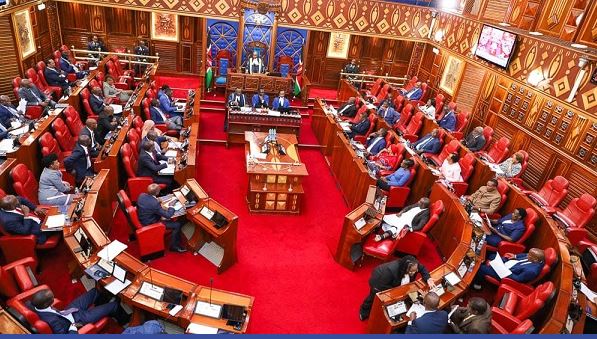

Herodotus, the father of history who lived in the 5th Century BC, wrote an account of the Greek leader Peisistratus’ ascent to power.
The leader wounded himself and rode to the administrative Assembly Hall, claiming an assassination attempt against him had been made for being the defender of the people.
The assembly, moved by his injuries and fear of the Elite stifling democracy, granted him personal armed guards, which he thereafter used to capture the Acropolis, the fortified heart of Athens and declared himself leader.
Many politicians have been known to claim persecution, threats against their lives or denied opportunities to their communities or voting bloc purely as a political tool in hopes of achieving the following three objectives: The first is emotional mobilisation of the voting bloc or community.
Research on how political decisions are made indicates that emotions are a 40 per cent determinant before logic, which garners 30 per cent. Social pressure contributes 20 per cent in decisions, leaving other factors the remaining percentage.
Politicians ought, however, refrain from too much repetition of their claim of persecution, as it may be read as paranoia, or may be discovered to be a ruse – both of which would negate the principal objective of mobilisation.
It is also of vital importance to the politicians that no actual harm befalls them, leaving leadership to another healthier person.
The claim of an assassination attempt or persecution works best when the alleged source of the threat or the perpetrator is revealed.
This identification of a common enemy results in a rallying call to the voting bloc or community. This – emphasising the common enemy—is the second objective of such claims.
Published research indicates that when a voting bloc or community feels under attack, there is a tendency of 45 per cent of them grouping behind a perceived strong leader, even as there is an increase of 30 per cent of previously non-committed people taking a stance. Within this active group, there will be 15 per cent who are leaning towards extremism.
Lastly, an estimated 10 per cent refuse to have anything to do with the matter. A third reason claims of persecution are rife is because politicians, especially those in office or plagued by scandals, wish to manage public attention and spread ownership of a misdeed.
This tactic sometimes ambitiously aims to forestall possible prosecution by implying arrest is but the first step to an inevitable assassination and the subsequent subjugation of the community or voting bloc.
Data analysis based on countries in Africa indicates a 30 per cent and 10 per cent short-term success rate in delay and dismissal of prosecution, respectively, but only where the citizens are extremely volatile.
In the long term, this tactic has only a 20 per cent success rate. The theme of marginalisation gave birth to a regional party called Pamoja Africa Alliance, with an emancipation narrative for coastal people.
The declaration that the two largest parties – UDA and ODM – were a domineering and colonising force, worked well to garner PAA the 11th position in party rankings, by having 21 elected or nominated members in various positions.
This achievement also earned the party leader, Amason Kingi, the powerful position of Speaker of the Senate. With the PAA not quite being able to run a similar narrative in the upcoming election, especially with the added complication that the coastal region has two Cabinet Secretaries and five Principal Secretaries, there are whispers that yet another political party has been formed with a similar ideology.
This party is said to attempt to domicile Gen Z aspirants and those seeking to vie – should the two dominant parties’ nominations work against them.
The interest in elective posts is growing, especially for the gubernatorial seat, portending a competitive election in Mombasa county.
Both ODM and UDA having their deputy party leader and secretary general, respectively, declared to run and each determined to emerge victorious.
Aspirants from their parties are liable to claim persecution, attempt to engage the emotions of the voters, while heaping blame on their competitor and portraying the party they are leaving as being against the people, before departing to alternative parties where they have pre-negotiated tickets.
Whether the two underdogs, Nyali MP and county Assembly Speaker, succeed in their bids for the Wiper Party and the new party tickets, respectively, as speculated, one has to wait to see.
The writer is a lawyer











